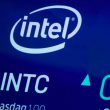Shiba Inu’s layer-2 solution, Shibarium, has been hacked for $2.4 million by an unidentified scammer. The Shibarium bridge connects to the Ethereum network, where the scammer used a flash loan to exploit loopholes and drain $2.4 million worth of ETH. The incident was recorded on Friday and brought to the notice of the SHIB team via several security alerts.
The leading blockchain and technical data analytical firm PeckShield was the first to bring the scam to notice. While commentators first believed the $2.4 million worth of ETH funds could be a whale, PeckShield immediately flagged it as a “hack.” They tagged the lead developer of Shiba Inu’s Shibarium, Shytoshi Kusama, to look into the matter.
Also Read: Shiba Inu 2032 Price Prediction if Total Crypto Market Hits $100T
Shiba Inu and Shibarium blockchain developer Kaal Dhairya picked it up from there, reviewing the situation. Kaal Dhairya explained that the hacker used a flash loan to buy 4.6 million BONE tokens. In addition, the attacker also gained access to validator signing keys and achieved majority validator power. Later, a malicious state tried to drain assets from the bridge.
However, Kaal Dhairya stressed that the hacked amount is locked and frozen at the moment. “Because the BONE was delegated to Validator 1, it remains locked (due to unstaking delays), giving us the chance to freeze those funds,” he said. This is the first time in three years since Shiba Inu’s Shibarium launch that the network faced an exploit from a bad actor.
Also Read: Shiba Inu: Why a Rate Cut is SHIB’s Only Chance to Hit $0.00003
Shiba Inu: What Actions Have Been Taken To Protect the Shibarium Funds?


Kaal Dhairya explained that the team has paused stake and unstake functionality on Shiba Inu’s Shibarium network. This locks the hacker from removing the funds from the network to his or her account. He also explained that “authorities have been contacted,” and is also “open to negotiating in good faith with the attacker: if the funds are returned.” He stated that if the hacker returns the amount, “we will not press any charges.”





